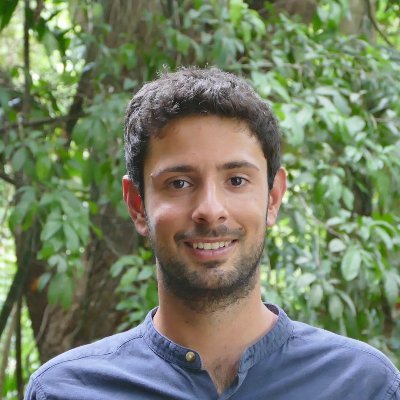COVID-19 Governance Series: Pablo Querubín and Massimo Pulejo


Author: Max Méndez Beck
In today’s COVID-19 Governance Series we feature EGAP member Pablo Querubín (New York University), along with his co-author Massimo Pulejo (New York University). We asked them about their paper “Electoral concerns reduce restrictive measures during the COVID-19 pandemic” which was recently published in the Journal of Public Economics.
In your paper, you look at how governments that are facing upcoming elections have responded to the COVID-19 pandemic versus governments that are not up for re-election. What were your main findings?
Pablo Querubín and Massimo Pulejo: Our analysis looked at two elements related to re-elections that should be independent of each other: the existence of a constitutional term limit on the sitting incumbent, and the number of days between the outbreak of COVID-19 and the next election. Our key findings were that, if the election was closer in time, incumbents implemented less stringent public health measures to prevent the spread of COVID-19. However, this was true only for incumbents who could run for re-election, whereas electoral horizons did not predict stringency in countries whose head of government could not seek a further term. Crucially, the effect was driven by policies likely to be more economically detrimental, like closing workplaces. We interpret this as evidence that, during the first wave of the pandemic, policymakers facing higher electoral pressure tried not to disrupt the economy prior to the election.
How did you define and measure the level of government stringency of public health policies for the purposes of your study?
PQ and MP: We defined stringency as: (i) limiting individual freedom (of work, movement or gathering), (ii) shutting down public services and events, or (iii) monitoring compliance. To measure this particular dimension of government response, we relied on the Stringency Index (SI) computed by the Oxford Government Response Tracker, a leading source of information on government response to COVID-19 across the globe. Their online repository provides daily values of the SI for over 150 countries, calculated by averaging and re-scaling nine different categorical indicators. The SI for a specific day goes from 0 to 100, with 0 corresponding to no restrictions, and 100 to the strictest possible measures being taken on each of the nine dimensions. Our primary dependent variable was a simple average of the SI across all days since the first COVID-19 case was detected in a country and May 29, 2020.
Can you provide us with an example of a country (or countries) that illustrate your main findings?
PQ and MP: If we take the effect size from our preferred analysis model – a 17-point reduction in the stringency scale described above–we can think about it as the difference in restrictions during the first wave of the pandemic between Colombia and France. In the former, where President Ivan Duque is facing a term limit, citizens faced a stringency of 76.5 during our period of observation. On the other hand, President Emmanuel Macron – who will be seeking a second term at the Élysée in the Spring – imposed “softer” constraints on the French population, attaining an average stringency of 58.7.
How does this research contribute to the broader literature on this topic? What directions do you envision future research taking?
PQ and MP: Our findings stress the importance of electoral concerns in driving policy choices, even in the context of a pandemic, when a coordinated response across countries—rather than the political calculations of their leaders—seems particularly important. Specifically, they highlight how–during a time in which public health and economic well-being were seen as being at odds with each other – some policymakers decided to partially sacrifice the former for the latter. We contribute to a now-growing literature that highlights the role of cultural and political variables in explaining the variation across countries in the severity of and response to the pandemic. While other papers highlight the ideology of a country’s leader, or more structural features of the political environment, such as regime type, we show that the timing of the outbreak relative to an upcoming election is another important factor to consider.
With regards to future research, we believe within-country studies may be able to dig deeper into the relationship between electoral concerns and the response to the pandemic. This is particularly relevant in countries such as the United States where such a response has devolved to local politicians, such as governors or mayors.
What policy implications, if any, could be drawn from your findings?
PQ and MP: During global crises, politicians across the world are under pressure to act fast and adopt the recommendations of international organizations like the European Union, the United Nations or the World Health Organization in a coordinated manner. This seems particularly important in the context of a pandemic due to the spillovers that public health decisions in one country may have on citizens across the world. Our findings show that electoral concerns can often constrain the extent to which national politicians interested in their own re-election are willing to coordinate their actions with other leaders. One potential implication of our findings is that supranational institutions should be given a stronger mandate on policy domains with significant spillovers, in order to insulate some policy choices from the electoral concerns of political leaders.